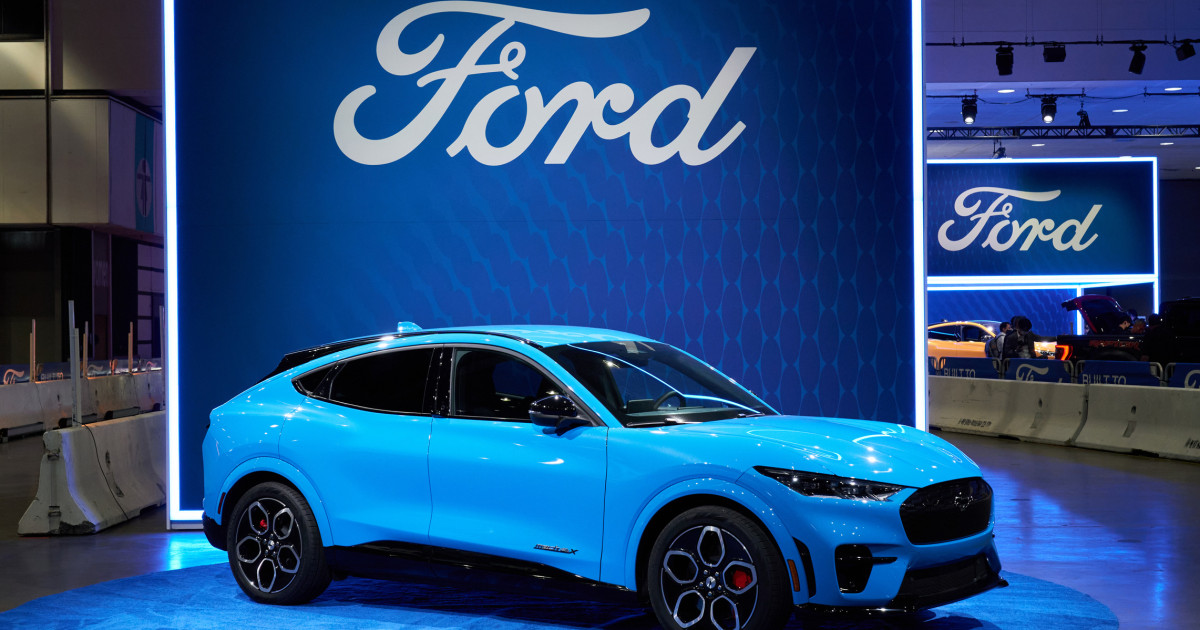DETROIT — Ford Motor is aiming to boost sales of its electric vehicles by addressing potential customer concerns through a new program that includes free home-charging installation and other benefits.
The “Ford Power Promise” program begins Tuesday for customers who purchase or lease a new Ford EV such as the F-150 Lightning pickup truck or Mustang Mach-E crossover. Part of the goal is to relieve financial burdens of EV ownership such as the need for a home charger. The program also seeks to educate new EV owners about the transition from traditional gas vehicles.
“Absolutely, we’re trying to grow our business but the best way we can grow our business is to serve our customers well,” Marin Gjaja, chief operating officer for Ford’s Model e EV business, told CNBC. “Filling up at home is really key, but so is confidence in the durability and life of the battery.”
The program launches as EV sales grow at a slower rate than many previously expected. Early adopters fled to the vehicles, but automakers have experienced problems expanding sales to mass market buyers due to costs, charging infrastructure and other hurdles.
Ford’s program aims to address many of those concerns, Gjaja said. It was conceived to address what Ford is calling “change anxiety,” a play on the common industry concept of “range anxiety,” which refers to the fear of an electric vehicle losing battery power between charging stations.
Chasing Tesla
“This is something we think is great for our customer, but we also think the way it’s set up, it’ll provide education for shoppers and intenders as well,” Gjaja said. “We’re trying to get people off the fence.”
The program will include standard installation of a $1,310 level-two home charger, complimentary 24-hour advisor service and roadside assistance for five years or 60,000 miles, whichever comes first.
If customers do not need a home charger or they opt out of the program, they will instead be provided a $2,000 cash equivalent toward the purchase or lease of the vehicle. The advisor and roadside assistance also will be available for current Ford EV owners.
The free EV charger installation offer is currently only good for the fourth quarter, however Gjaja said the company could extend the time frame of that offer.
The company said it’s also going to ramp up information around its existing 8-year or 100,000-mile battery warranty — an industry standard that Ford found many consumers were unaware of with its EVs.
“We want to make sure people understand we’ve got your back on the battery, and the battery can be serviced,” Gjaja said.
Ford’s EV warranty covers all of a vehicle’s high voltage system in addition to the battery. Other components are covered for three years or 36,000 miles, whichever comes first.
The company did not disclose a potential expense for the new “Ford Power Promise” program.
Ford was the third-bestselling automaker of EVs through the first half of the year, behind U.S. industry leader Tesla and Hyundai Motor, including its Genesis luxury brand and Kia sibling.
Selling EVs remains a complicated equation for legacy automakers such as Ford. EVs lose money or remain far less profitable than gas-powered models, but they help automakers meet tightening federal fuel economy standards and are a growth area for companies.

Leave a Reply